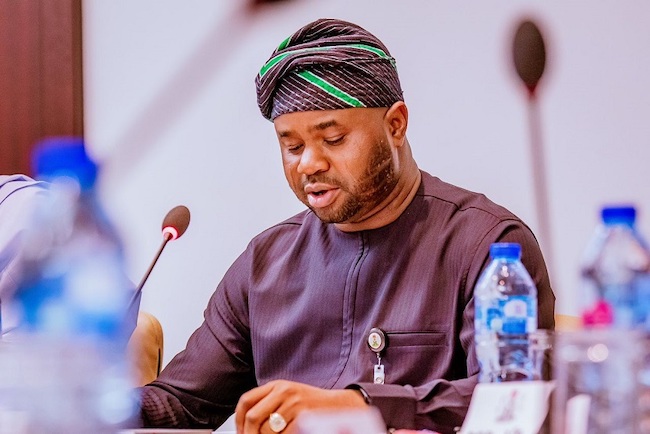
An ambitious target has been set by the Federal Government through the Federal Inland Revenue Service, aiming for a Value Added Tax revenue of N5 trillion in 2024. Measures are being implemented to address tax discrepancies and align with the tax reform directives of the Economic Community of West Africa States (ECOWAS).
Zacch Adedeji, the Chairman of the FIRS, revealed this during a press conference in Abuja, which was organized by the Support Programme for Tax Transactions in West Africa, a program supported by the European Union and ECOWAS. He emphasized the continuous growth of VAT revenue over the years, citing figures of N1.9 trillion, N1.5 trillion, N2.5 trillion, N2.3 trillion, and 3.6 trillion for the years 2019, 2020, 2021, 2022, and 2023, respectively.
He also mentioned the government’s adherence to Article 30 of the ECOWAS concerning tax reforms. As outlined in Article 30 of ECOWAS VAT reform, member states are granted the flexibility to set VAT rates between 5% and 20%, with the possibility of establishing reduced rates determined by the Council of Ministers.
The FIRS previously projected a revenue of N19.41 trillion from tax transactions in 2024, marking a significant 56.91% increase from the previous year’s actual revenue and a 67.91% increase from the previous year’s target.
Osanekwe conveyed discussions within the National Assembly regarding the passage of the VAT reform into law, with expectations of increasing VAT revenue to approximately N5 trillion from the current N3.6 trillion.
“Since 2019, we have observed a substantial improvement in VAT collection in Nigeria. Following policy recommendations, the VAT rate was shifted from five percent to seven percent. Our efforts are aligned with the ECOWAS directive on Article 30 as we expand VAT collection by encompassing various taxable operations and goods,” stated Osanekwe.
He further elaborated on the ongoing collaboration with the United Nations Development Programme to enhance worker training on VAT gap analysis, with the ultimate goal of reaching a VAT revenue target of around N5 trillion in 2024.
During the conference, Mr. Massimo De Luca, Head of Cooperation of the European Union Delegation to Nigeria, emphasized the importance of Nigeria’s VAT system in generating revenue. He acknowledged the passive misuse of resources by the government, leading to low citizen compliance with VAT payments.
The European Union, in alignment with ECOWAS, advocated for improved utilization and transparency in tax revenue allocation to enhance public trust and compliance with VAT regulations in Nigeria.
Mr. Andrew Onyeanakwe, a representative of the Support Programme for Tax Transactions in West Africa, highlighted the program’s objective to enforce the Fiscal Transition Programme in West Africa, bolstering domestic tax revenue mobilization efforts across ECOWAS member states and Mauritania.
